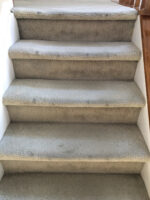How Much Does It Cost To Replace A Gas Furnace?
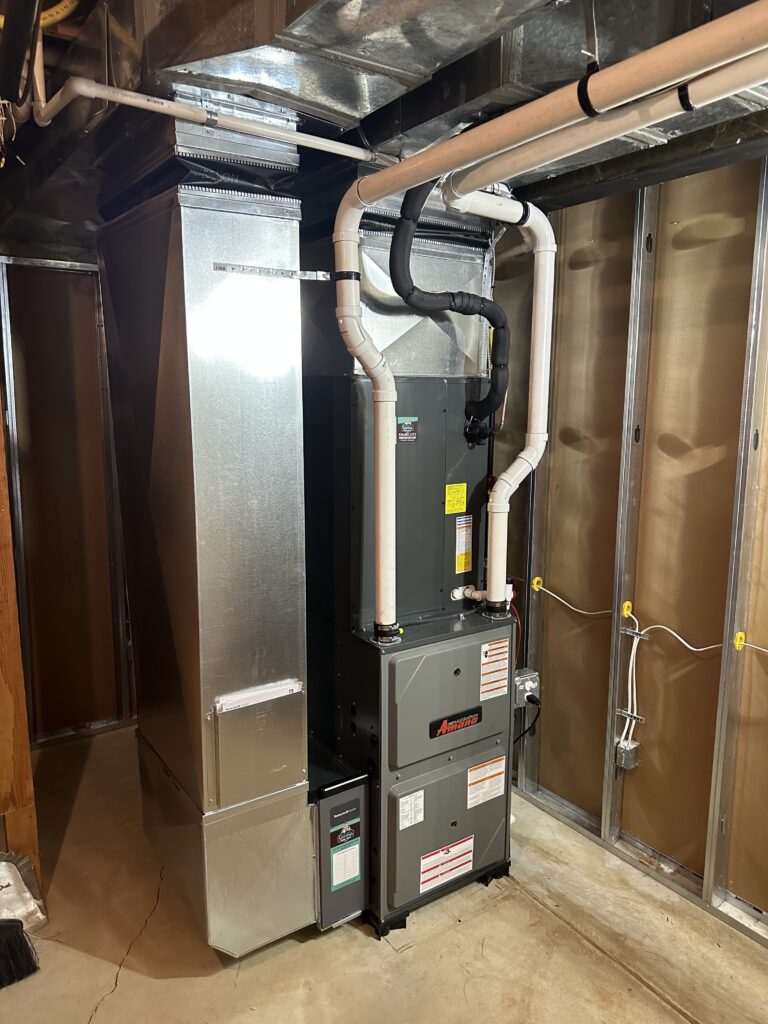

Your furnace becomes the most crucial component of your home when the weather turns frigid. You need a working heating system to keep your house warm during the winter. But if your old furnace fails and repairs are pricey or frequent, you might consider a new furnace. Don’t freak out. The right service company can help. We will discuss the typical costs of replacing a gas furnace to help you estimate your potential expenses. We’ll also show you a few indicators that you might need a new furnace, so read on. How Much Does It Cost To Replace A Gas Furnace? A gas furnace transforms energy into heat, which spreads throughout your house as warm air. Although there are many different fuel options for furnaces, gas furnaces are the most common option for households. Why? They provide warmth and comfort for homes without raising monthly energy expenses. Gas furnaces are also affordable to install and don’t require much upkeep. The price to replace a gas furnace may vary greatly depending on the type of furnace you choose and how challenging the installation process is. Replacing your gas furnace with a new one can cost you between $2,000 and $7,000. However, some high-efficiency models can go as high as $12,000 today. What factors affect the final price? Three key aspects go into calculating the cost of replacing your furnace. Type of Gas Furnace The cost of a gas furnace varies depending on its efficiency and features. Although they cost more upfront, more efficient furnaces can save you money on your gas bill. Even though it is more expensive than a single-stage model, a two-stage furnace may be more reliable and efficient in maintaining warm temperatures. Furnace Parts Your HVAC specialist will use compatible parts and supplies to install your new furnace inside your current heating system. Usually, your installation expenses will cover the cost of these materials. Labor Expect a qualified specialist to spend several hours working on your installation. For complicated or labor-intensive installations, these labor expenses could easily reach $1,500 or more. Common Furnace Issues Although old age is a significant contributing factor, there are other causes of furnace failure. The following are some of the primary reasons for furnace breakdowns: Dirty filters Age Heat exchanger with cracks Blower motor malfunction It’s time to think about a replacement when a gas furnace is old enough to drive. The typical lifespan of a furnace is between 16 and 20 years. However, some homeowners choose to replace it sooner to increase their home’s efficiency. But for experts, modern furnaces are frequently more effective. How to Find the Best Gas Furnace? Fortunately, determining how much a new gas furnace will cost is simple. The type of furnace determines the cost of installation. It’s crucial to pick a furnace that fits the size of your house. If the gas furnace is too small, your home won’t be able to be heated efficiently. On the other hand, if it is too large, it will waste energy, causing a high electricity bill. It all comes down to working with a reputable service provider to ensure the furnace is suitable for your home and needs. It will assure you that the work is worthwhile and give you peace of mind this chilly winter. Choose Professor Gatsby Heating and Cooling, a provider of heating & cooling comfort in Southern New Jersey. Replacement gas furnaces can cost anywhere between $2,000 and $7,000. Work with professionals with extensive installation expertise and strike the perfect balance between cost and efficiency. Contact Professor Gatsby Heating and Cooling for a furnace installation that satisfies your comfort needs. Call our staff today and ask for a free estimate! You can reach us by phone at (856) 885-2231 or at https://www.profgatsby.com/.
The Top 5 Causes of Furnace Failure and Potential Need for Furnace Repair Services
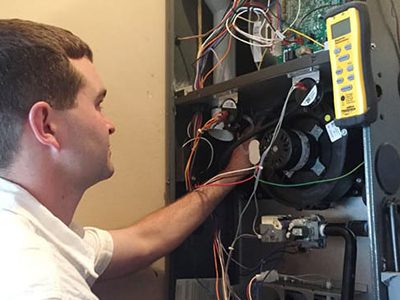

A furnace is an essential appliance in a home, particularly during the winter. It provides warmth and comfort when temperatures outside are at their coldest. Imagine the stress of returning home to a chilly house only to find that your furnace has broken down, necessitating the need to call a furnace repair service. If this happens to you, don’t panic! Below are five common reasons why furnaces stop working and how you can fix them. Thermostat Issues A thermostat issue is one of the most prevalent causes of furnace failure. There are a variety of causes of thermostat malfunctions, including old age, weak wiring, and low battery power. Try changing the batteries if you think the thermostat is the issue. If it doesn’t work, a new thermostat may be required. If you don’t feel confident handling the job, call a heating technician from a trusted furnace repair service for a more thorough diagnosis. Pilot Light Issues Your furnace may not be working if the pilot light used to ignite the burner has gone out. The furnace won’t produce heat if the pilot light is out. You can inspect the pilot light through the access panel on the side of the furnace. You can attempt to manually relight the pilot light if it goes out by carefully following the directions in your user’s manual. Contact a licensed HVAC specialist to do it for you if you don’t feel comfortable handling it yourself. Clogged Air Vents Clogged air vents are another typical issue that can stop a furnace from functioning. Blocked air vents can result in decreased efficiency and reduced airflow. Turn off and restart your furnace after clearing debris from the air vents. After the dust and dirt are gone, clean the area using a brush or a vacuum with a hose attachment. Once you’ve finished cleaning the vents, switch on your furnace to ensure it’s properly operating. Gas Leakage It is among the dangerous reasons for furnace malfunctions. If you smell gas when turning on your furnace, there may be a leak, and you should immediately leave the area. Don’t try to re-light the pilot light because that might start a fire or cause an explosion. Avoid attempting to tackle the problem on your own. Once you are safely outside the house, call your gas company so they can send someone out to fix the leak. Faulty Blower Motor If your furnace includes a blower motor, that could be the root of the problem. The furnace’s blower motor pumps air around your home. Its damage or failure could result in less efficient operation and reduced airflow. To check for damage, open the access panel on your furnace and look directly at the blower motor. Get a new one if there is any damage, such as cracks or missing pieces. Since it requires specialized equipment and training, you should hire a licensed furnace repair service specialist to handle this for you. Conclusion While furnaces can last, something will eventually go wrong, which could mean repair or replacement. Knowing some of the most common causes of furnace failure might help you avoid wasting time and money when your furnace ultimately decides to quit. When all else fails, what? As a last resort, you should always call a licensed heating technician! Call Professor Gatsby’s Heating and Cooling at 856-885-2231 for more details on how we can help with your furnace and heater repairs and maintenance. We offer skilled and reasonably priced furnace repair services. You can contact us by using our online form, and we’ll get back to you immediately.
Preparing Your HVAC System for the Changing Seasons: Summer to Fall Transition
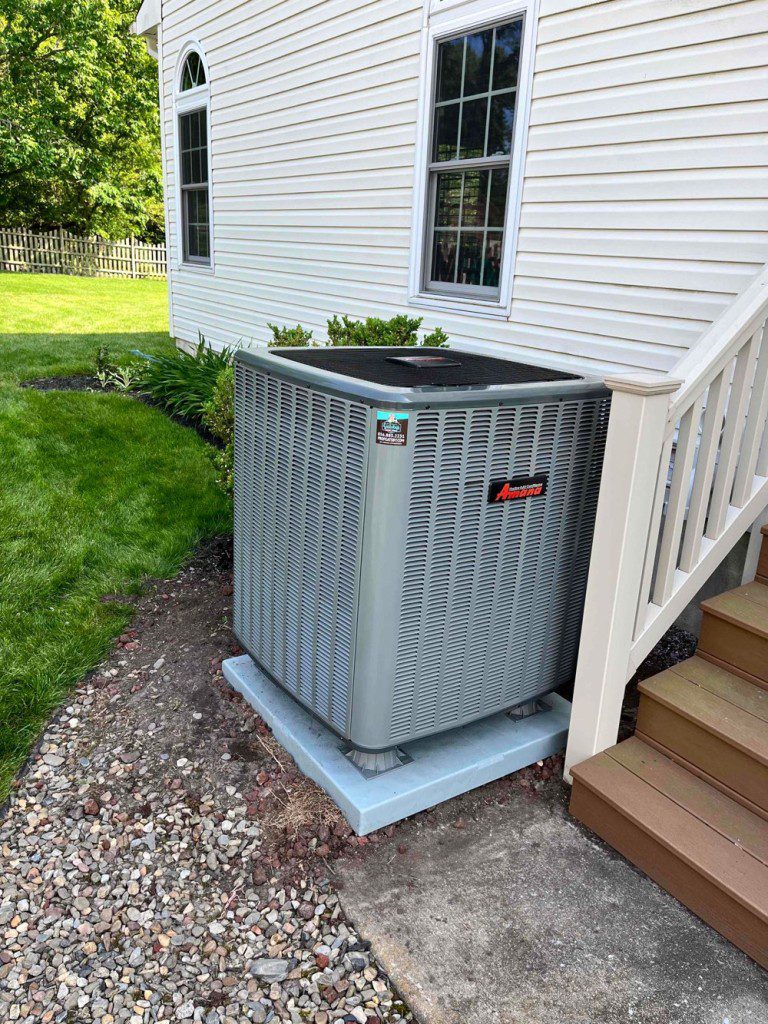


As summer gradually gives way to fall, it’s time to shift your focus from keeping cool to staying warm and comfortable indoors. Properly transitioning your HVAC system from cooling mode to heating mode is essential for ensuring a seamless shift in seasonal comfort. In this blog post, we’ll delve into the importance of this transition, provide step-by-step instructions for homeowners, and highlight the benefits of proactive HVAC maintenance as the weather cools down. The Importance of Transitioning Your HVAC System: Transitioning your HVAC system from summer to fall mode is more than just flipping a switch—it’s about optimizing your system’s performance for the changing weather conditions. Neglecting this transition can lead to inefficiencies, discomfort, and even potential system issues. By proactively preparing your HVAC system for fall, you’ll enjoy a smooth transition and uninterrupted indoor comfort. Step-by-Step Instructions for a Seamless Transition: Adjust the Thermostat Settings: Gradually raise the thermostat temperature from cooling mode to heating mode. Consider installing a programmable thermostat to automate temperature adjustments based on your daily schedule. Replace Air Filters: Change or clean air filters to ensure proper airflow and prevent dust and debris from entering the system. Clean filters improve indoor air quality and contribute to efficient system operation. Inspect and Clean Vents and Ducts: Check vents and ducts for blockages, debris, or dust buildup that may have accumulated during the summer months. Ensure proper airflow and distribution of heated air throughout your home. Schedule Professional System Inspection: Arrange for a professional HVAC inspection and maintenance service. Technicians will perform a thorough system check, including inspecting electrical components, cleaning coils, and ensuring proper system operation. Benefits of Proactive Maintenance: Improved Energy Efficiency: Proactively maintaining your HVAC system helps ensure that it operates at peak efficiency. A well-maintained system consumes less energy, resulting in lower utility bills during the fall and winter months. Enhanced Comfort: A properly tuned HVAC system provides consistent and even heating throughout your home, ensuring your comfort during colder days. Prevention of Costly Repairs: Regular maintenance helps identify and address potential issues before they escalate into major problems. Timely repairs prevent unexpected breakdowns and the need for costly emergency repairs. Extended System Lifespan: Proper care and maintenance extend the lifespan of your HVAC system, saving you money in the long run. Transitioning your HVAC system from summer to fall is a proactive step that pays off in comfort, energy savings, and system longevity. By following these step-by-step instructions and scheduling professional maintenance, you’ll ensure that your HVAC system is ready to provide efficient and reliable heating throughout the upcoming fall season. Don’t overlook the importance of this transition—take the necessary steps to prepare your HVAC system for the changing seasons and enjoy a cozy and comfortable indoor environment.
How to Maximize Energy Efficiency and Save on Cooling Costs in South Jersey



As the summer heat intensifies in South Jersey, keeping your home cool and comfortable becomes a priority. However, running your air conditioning system constantly can lead to high energy bills. The good news is that there are several effective strategies to maximize energy efficiency and save on cooling costs. In this blog post, we will explore practical tips to help you stay cool while keeping your energy consumption and expenses in check during the hot summer months in South Jersey. Optimize Your Thermostat Settings: Setting your thermostat at an energy-efficient temperature can significantly impact your cooling costs. Consider keeping your thermostat set at the highest comfortable temperature. Each degree you raise the temperature can save you money on energy bills. Additionally, using a programmable or smart thermostat allows you to schedule temperature adjustments based on when you’re home or away, optimizing energy usage. Utilize Ceiling Fans: Ceiling fans provide an additional cooling effect and can make a room feel more comfortable. They circulate the air, creating a breeze that helps evaporate moisture from your skin, making you feel cooler. By using ceiling fans in conjunction with your air conditioner, you can raise the thermostat temperature by a few degrees while maintaining a comfortable environment, resulting in energy savings. Seal Air Leaks and Insulate: Air leaks and insufficient insulation can lead to significant energy losses, especially in older homes. Inspect windows, doors, and other potential areas for air leaks. Seal gaps and cracks using weatherstripping or caulking to prevent cooled air from escaping and warm air from entering. Proper insulation in your home’s walls, attic, and ductwork also plays a crucial role in maintaining energy efficiency. Regularly Maintain Your HVAC System: Proper maintenance of your HVAC system ensures it operates at peak efficiency. Schedule professional maintenance before the summer season to clean coils, replace air filters, lubricate moving parts, and check for any issues that could affect performance. Regular maintenance not only saves energy but also extends the lifespan of your system, preventing costly repairs. Utilize Natural Ventilation and Shade: Take advantage of cooler evenings and nights by opening windows and using natural ventilation to cool your home. Strategic use of blinds, curtains, and shades during the day can also prevent excess heat from entering your home. Consider using light-colored or reflective window coverings to reflect sunlight and keep your home cooler. Conclusion: By implementing these energy-saving strategies, you can maximize energy efficiency and save on cooling costs during the hot summer months in South Jersey. Remember to optimize your thermostat settings, utilize ceiling fans, seal air leaks, insulate your home properly, schedule regular HVAC maintenance, and take advantage of natural ventilation and shade. With these proactive steps, you can enjoy a cool and comfortable home while reducing your environmental impact and saving on energy bills. Stay cool and energy-efficient this summer in South Jersey! If you need professional assistance in optimizing your HVAC system’s energy efficiency or have any other cooling-related concerns, feel free to contact the knowledgeable team at Professor Gatsby’s Heating & Air Conditioning. We’re here to help you achieve optimal comfort while keeping your energy costs under control.
Gas Furnace Versus Electric Furnace
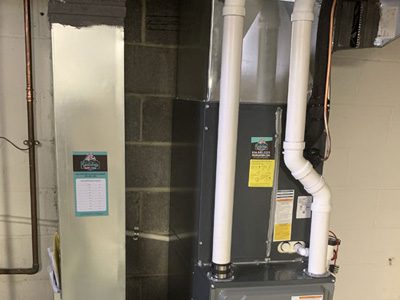

When you want to install the right heating system for your home or place of business, it is important to know the differences between gas and electric furnaces and what will benefit your requirements the most. In this guide, we look at the key difference to help you make the right choice. Initial Costs Electric furnaces cost less upfront and are easier to install. You should expect to spend up to $2,500 on a new electric furnace unit and the installation should cost you up to $1,500. On the other hand, a gas furnace unit can cost up to $4,000 while the installation cost can be up to $2,000. Thus, you should expect to spend up to $4,000 on an electric system. A gas furnace unit and installation should cost up to $6,000. Energy Costs Gas furnaces may cost more for the initial setup, but they cost less to operate. The primary reason is that natural gas is cheaper than electricity. Electric furnaces are generally better only in dry climates with mixed or hot temperatures. The Energy Information Administration predicts natural gas prices to rise in the near future. Still, the cost of operating gas furnaces will be much lower. Installation Comparison If your home has access to a gas line, it will be simple to install a gas furnace. But the process will still be more difficult than installing electric furnaces. Gas furnaces are larger in size and are complex in design. The ease of installation also contributes to the lower setup cost for electric furnaces. Overall Lifespan Gas furnaces can last from 10 years to 20 years and electric systems 20 years to 30 years. This significant difference between their lifespan is caused by the way each operates. Gas units produce tiny particles that build up within the system. They require regular cleaning and maintenance and are more likely to fail. The heat exchanger has many working parts and corrosion is also a concern. All these factors also increase the frequency and cost of maintenance. How to Choose the Right Heating System? When it comes to operational costs, the gas furnace makes much more sense. But that should not be the only factor to guide your decision. We recommend gas systems if you already have access to natural gas and need it for many months of the year. Most homeowners who already have a gas furnace are good candidates for an upgrade. Thus, electric furnaces are recommended for those who don’t have access to natural gas and live in a temperate climate. When choosing between the two systems, your personal preferences also matter. At Professor Gatsby’s Heating & Cooling, we provide complete heating repair, installation, and replacement services in Williamstown, NJ. If you need any information or help related to heating systems, call us at 856-885-2231 or write to us using this Online Form.
Five Benefits of Installing A Garage Heater In Your Home
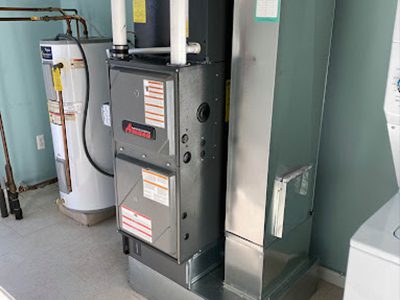

Winter is coming! Is your garage ready for the upcoming cold season? Many homeowners neglect their garage before the winter until it causes them problems. Today, people are deciding to heat their garages because of the added room and the benefits to safety. Do you need garage heater installation? See the key reasons behind this trend’s success! It Is Safe For Your Family For your household, they are safer. Due to the hazardous carbon monoxide emissions, you should never use your remote starter when parking inside your garage, even when it’s freezing outside. A garage heater will keep your car warm and prepared for the trip while protecting your family. It Keeps You and Your Car Warm In Winter Both you and your car will be kept warm by these heaters. It will help prolong the life of the battery in your vehicle. A garage heater will also help you use less fuel and power because you won’t need to warm up your car or plug in the block heater like you do when you park outside. Maintaining your car will be simpler, and driving won’t require you to clear snow and scrape ice off the road! They are Compact and Quiet Garage heaters are becoming smaller and more effective as technology advances. Many garage heater models don’t need ducting, which makes them much more discrete and space-efficient. Unit heaters are typically suspended from the ceiling and direct hot air downward, providing spot heating. Garage heaters are now working more quietly than before. They are Cost-Efficient A garage heater might fluctuate in price depending on the size of the area you want to heat and how fast you need it to warm up. Garage heaters that burn propane or natural gas must vent through side-wall or roof venting. A well-installed, energy-efficient garage heater will not increase your electricity bill. They Provide Your House with Better Living Space A garage heater is perfect for you if you’ve ever wanted to use your garage as a shop or simply as a place for the kids to play and run around. You can create a unique living environment by making the most of the space in your garage with the help of a garage heater. Final Thoughts In addition to securing your car and providing comfort and convenience on chilly winter days, garage heaters let you use valuable space at your home. If you want a garage heater installation in New Jersey for your garage, give us a call. Our certified HVAC specialists will inspect your garage and provide you with the best options. Schedule a free consultation with the experts at Professor Gatsby Heating and Cooling today to benefit from the comforts of a warm garage during winter.
Benefits of Variable Speed Air Conditioners
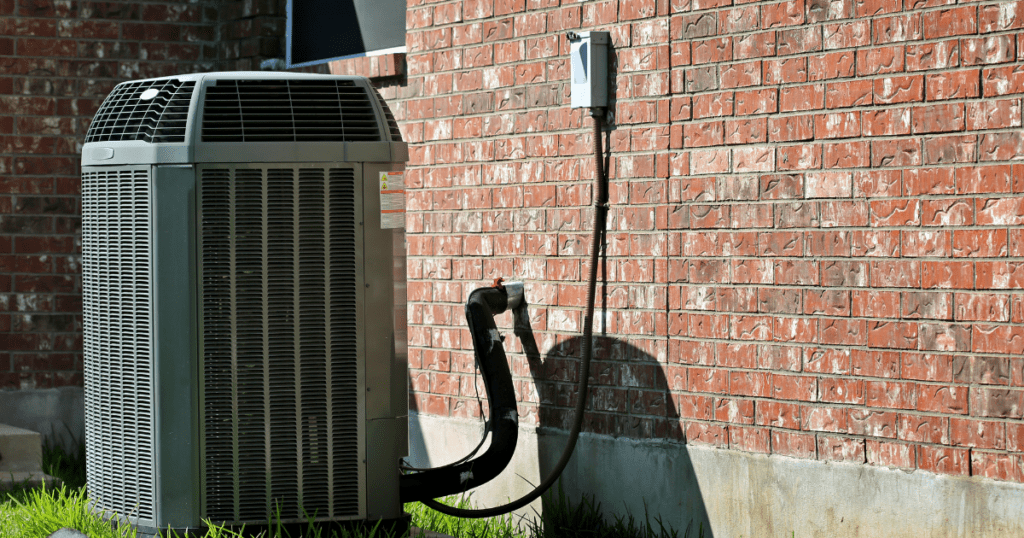

Basics of single stage air conditioning Most American homes with central air conditioning use a single stage compressor. These compressors were standard for decades, and they continue to represent the majority of AC units we service in South Jersey. A single stage compressor turns on when indoor temperatures exceed the temperature setting on your thermostat. For example, if you set the thermostat to 75 degrees, the air conditioner will run anytime indoor temperatures hit 76 degrees. After the AC cools the house back to 75 degrees, it will turn off again. Single stage compressors always operate at 100% capacity. They turn themselves on and off continuously throughout the day. Basics of variable speed air conditioning Variable speed compressors work differently. In order to maintain an indoor temperature that matches the setting on your thermostat, they operate continuously at less than 100% capacity – often as low as 25% or 30% capacity. As a result, they run for much longer cycles than single stage AC units. In summertime, they might run for all or most of the day! Here’s one way to get your head around the difference: Single stage compressors blast your home with cold air and turn themselves off when when the desired temperature is reached. Variable speed compressors blow a smooth, steady stream of cold air into your home to maintain the desired indoor temperature, rarely turning themselves off. What about a two stage compressor? Good question! A two stage or dual stage compressor sits somewhere between single stage and variable speed systems in terms of how it functions. While it doesn’t operate at a wide range of capacities like a variable speed unit, it does vary its output somewhat. A single stage AC offers one level: high. A two stage AC offers two levels: high and low. It runs at full capacity when you need it to and at a lower level when you don’t. Two stage units don’t run as continuously as a variable speed AC, but they do cycle on and off less frequently than single stage systems. How variable speed compressors improve comfort and efficiency At this point, you’re probably thinking, “It’s hot out there! Why would I want an air conditioner that runs longer and cools my home more slowly?” For one thing, a variable speed compressor’s longer run times dehumidify your home more effectively than the relatively brief cycles of a single stage unit. One of the biggest problems with single stage compressors is that they’re not running continuously. Relative humidity increases whenever the AC isn’t on, making you feel hotter and more uncomfortable. This is especially acute when an air conditioner is oversized, as they often are. Most people deal with this problem by lowering the temperature on their thermostat, which brings us to the other benefit of variable speed compressors: cost. A single stage compressor blasts your home with cold air before it turns itself off. Then it turns on again when the indoor temperature increases. Most of your air conditioner’s electricity draw occurs when it turns on, not while it’s running. In the summer, a single stage compressor turns on and off a lot, a process known as “short cycling.” Do you see where this is going? Since single stage compressors tend to short cycle, they usually draw a lot more electricity than a variable speed unit that turns on and stays on for hours. As a result, the single stage AC is much more expensive to operate! When it comes to comfort and efficiency: Single stage air conditioners don’t dehumidify indoor air very well, forcing you to lower the temperature setting on your thermostat. They also turn on and off a lot, which increases your energy bill. Two stage compressors don’t turn on and off nearly as much. They’re more efficient than single stage units, but not as efficient as variable speed compressors. Variable speed air conditioners run continuously, effectively dehumidifying the air inside your home. As a result, you feel comfortable at higher temperatures and don’t have to set your thermostat to a low temperature. And since they don’t turn on as often, variable speed AC units lower your utility costs. There are fringe benefits, too. Believe it or not, more effective cooling and greater efficiency aren’t the only benefits of a variable speed compressor. If you’re concerned about indoor air quality, opting for a two stage or variable speed unit can help purify the air circulating around your home, resulting in healthier conditions for you and your family. Since they dehumidify indoor air more effectively than a single stage unit, a more efficient system helps you: Eliminate mold growth in bathrooms and kitchens Prevent the proliferation of dust mites Create conditions that are inhospitable to insect intruders And since variable speed units run more frequently, they also filter your indoor air more effectively. More air is cycled through your return ducts – and your air filters – resulting in a lower volume of air contaminants. They’re also quieter than single stage compressors. If you’re used to cool air exploding into your home like a sudden gust of wind, you’ll probably be surprised by the variable speed unit’s more subdued, consistent air flow.
Stay Allergy-Free: Managing Indoor Allergens During the Summer Months
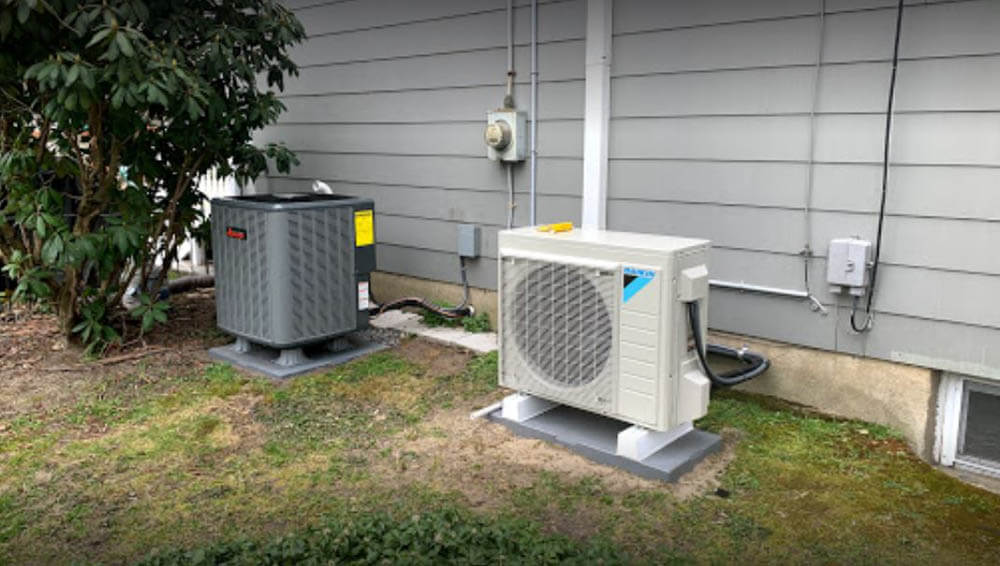

While summer brings warm weather and outdoor adventures, it also heralds the arrival of allergens that can wreak havoc on allergy sufferers. Contrary to popular belief, indoor allergens are not limited to the winter months. In fact, the summer season can introduce a whole new set of triggers that can affect your indoor air quality and overall well-being. In this blog post, we’ll guide you through effective strategies to manage indoor allergens and create a sanctuary of allergy relief within your home during the vibrant summer months. Keep Windows Closed: As inviting as a gentle summer breeze may seem, it can also carry pollen and outdoor allergens into your living spaces. To minimize their entry, make an effort to keep windows and doors closed, especially during peak pollen times. Consider using air conditioning with a clean and well-maintained filter to circulate and cool your indoor air. Regular Cleaning: Maintaining a clean and allergen-free home environment is crucial for allergy relief. Regular dusting, vacuuming, and mopping can help remove dust mites, pet dander, and other allergens that may have settled on surfaces. Pay special attention to areas like carpets, rugs, upholstery, and curtains. Air Purification: Investing in high-quality air purifiers can significantly improve indoor air quality by effectively filtering out allergens. HEPA (High-Efficiency Particulate Air) filters are especially beneficial, capturing even the tiniest airborne particles that can trigger allergies. Place air purifiers strategically in common areas and bedrooms for maximum effectiveness. Pet Care: For pet owners, managing indoor allergens becomes a priority year-round. Regular grooming, including brushing and bathing your furry companions, can help minimize shedding and dander. Designate pet-free zones in your home, such as bedrooms, to create allergy-free retreats. Maintain HVAC System: Your HVAC system plays a crucial role in controlling indoor allergens. Regularly changing your HVAC filters can prevent the buildup of dust, pollen, and other particles. Consider using allergen-specific filters designed to capture even the smallest irritants. Schedule professional HVAC maintenance to ensure optimal system performance and cleanliness. While summer may bring its share of allergens, you don’t have to surrender to their discomfort. By implementing these indoor allergen management strategies, you can create a haven of allergy relief within your home, allowing you and your family to enjoy the season to the fullest. From keeping windows closed to investing in air purifiers and practicing consistent cleaning routines, you have the power to minimize indoor allergens and breathe easy during the vibrant summer months. Embrace these proactive measures and make your home a sanctuary where allergies have no place.
Top Things that could be wrong with your air conditioner
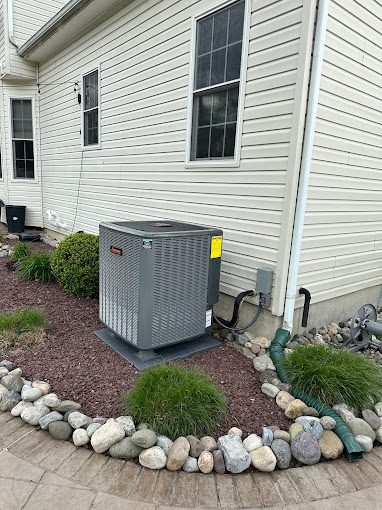

My Air Conditioner isn’t working, what could be wrong? Is your air conditioner not working properly? It can be frustrating when your AC isn’t keeping you cool during the hot summer months. There are several common issues that can occur with air conditioning systems. Here are some signs to watch out for and the potential problems they may indicate: Warm or Cool Air Blowing Out of Vents, Unit Won’t Keep Up: If your air conditioner is blowing air that is not cold enough or struggling to keep up with the desired temperature, it could be due to a low refrigerant level. Low refrigerant can result in poor cooling performance and increased energy consumption. Water or Ice Leaking Near the Heater Area: Water or ice leaks near the heater area could indicate a plugged condensate drain. When the drain is clogged, the system may shut off to prevent flooding or damage. It’s important to address this issue promptly to avoid further complications. Thermostat Set to 70 but Won’t Keep Up: If you’ve set your thermostat to a specific temperature but the AC fails to reach it, there might be a problem with the thermostat itself. It could be malfunctioning or require recalibration. Poor or No Airflow Out of Your Vents: Insufficient airflow from the vents could be a result of a clogged air filter, blocked ductwork, or a malfunctioning blower motor. Restricted airflow can decrease cooling efficiency and comfort levels. Thermostat Isn’t Working Properly or Screen Is Black: A malfunctioning thermostat can cause inaccurate temperature readings or a non-responsive screen. This issue may require recalibration, battery replacement, or even a thermostat replacement. Air Conditioner Running Outside, but No Air Coming Out of Vents: If the outdoor unit is running, but there is no airflow from the vents, there could be an issue with the blower motor or a blockage in the ductwork. A professional inspection is necessary to diagnose and resolve the problem. Buzzing Sound Coming from Outside Unit: A buzzing sound coming from the outdoor unit could indicate a faulty electrical connection or a failing component. It’s important to address this issue promptly to prevent further damage. Loud Noises, Rattling Noises Near Furnace or Outside AC Area: Unusual noises, such as rattling or banging sounds, may indicate loose or damaged components. These noises should be investigated by an HVAC professional to prevent potential system breakdowns. Tripping Electric Breaker: If your air conditioner repeatedly trips the electric breaker, it could be due to an electrical issue, such as a short circuit or overload. This problem should be addressed by a licensed professional to ensure safety and prevent electrical hazards. While it may be tempting to attempt air conditioner repairs yourself, it’s important to consider the potential risks and drawbacks. Here are a few reasons why it’s generally best to leave AC repairs to licensed HVAC professionals: Safety: Air conditioning systems involve high voltage electrical components and potentially hazardous refrigerants. Without proper knowledge and training, DIY repairs can pose risks of electric shock, burns, or exposure to harmful chemicals. Warranty Concerns: Many air conditioner manufacturers require repairs to be performed by licensed HVAC professionals to maintain the system’s warranty. DIY repairs may void the warranty and leave you responsible for future repairs or replacements. Costly Mistakes: Air conditioning systems are complex, and attempting repairs without proper expertise can lead to costly mistakes. Misdiagnosing the problem, using incorrect parts or tools, or causing further damage to the system can result in additional expenses. Code Violations: HVAC professionals are trained to follow local building codes and safety regulations when working on air conditioning systems. DIY repairs can potentially violate these codes, leading to fines or penalties. In conclusion, it’s best to entrust air conditioner repairs to licensed HVAC professionals who have the knowledge, training, and tools necessary to diagnose and fix issues safely and effectively. This ensures that your system is repaired correctly, operates efficiently, and provides the cooling comfort you need during the hot South Jersey summers.
Navigating Winter Plumbing Woes in South Jersey: Tips for Homeowners
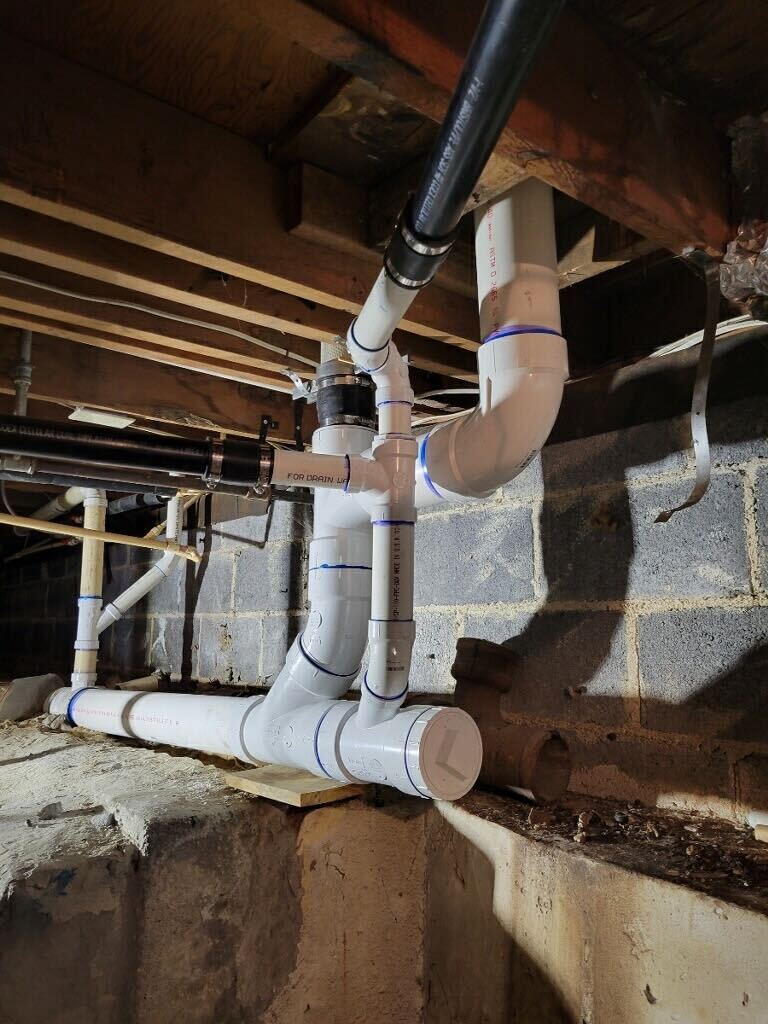

Navigating Winter Plumbing Woes in South Jersey: Tips for Homeowners As winter blankets South Jersey with its chilly embrace, homeowners must prepare for the unique plumbing challenges that the season brings. From frozen pipes to cold-weather emergencies, understanding how to navigate winter plumbing issues is essential for maintaining a functional and secure home. In this blog, we’ll explore common winter plumbing woes in South Jersey, offer preventive maintenance tips, and provide guidance on handling plumbing emergencies during the coldest months. The Freeze Threat: Understanding South Jersey’s Winter Plumbing Woes: South Jersey’s winter can be unforgiving, with freezing temperatures that pose a threat to plumbing systems. Frozen Pipes: The risk of frozen pipes is a primary concern during winter. Explore the common areas where pipes are vulnerable to freezing and understand the potential consequences. Burst Pipes: Frozen pipes can lead to burst pipes, causing extensive damage to your home. Learn about the signs of burst pipes and the immediate actions to take when they occur. Preventive Measures for Winter Plumbing Woes: Arm yourself against winter plumbing issues by implementing preventive measures to protect your home. Insulation is Key: Ensure that pipes, especially those in unheated areas, are well-insulated. Insulation can be a game-changer in preventing freezing. Drip Faucets: Allow faucets to drip slowly during extremely cold nights. This continuous flow of water helps prevent pipes from freezing. Seal Drafts: Seal any drafts or openings in your home to keep cold air out. This not only helps with energy efficiency but also protects your plumbing. Seasonal Maintenance Tips for Winter Plumbing Resilience: Adopting a proactive approach to seasonal maintenance is crucial for winter plumbing resilience. Heating System Check: Ensure that your heating system is in top-notch condition. Regular maintenance will not only keep you warm but also prevent freezing issues. Gutter Clean-Up: Clear gutters of debris to prevent ice dams. Proper drainage is essential for avoiding water backups that can impact your plumbing. What to Do in Case of Winter Plumbing Emergencies: Despite best efforts, emergencies can still occur. Knowing how to respond is key to minimizing damage. Shut Off Water: In the event of a burst pipe or significant leak, locate and shut off the main water valve immediately to prevent further damage. Call a Professional: Have the contact information of a reliable plumbing professional on hand. Winter emergencies may require prompt attention from an expert. Conclusion Winter in South Jersey can be a picturesque wonderland, but it comes with its own set of plumbing challenges. By understanding the risks, implementing preventive measures, and knowing how to respond to emergencies, homeowners can navigate winter plumbing woes with confidence. Protect your home, ensure the comfort of your family, and embrace the beauty of winter without fearing its impact on your plumbing. Stay warm, stay informed, and let your home be a haven even in the coldest of seasons.



